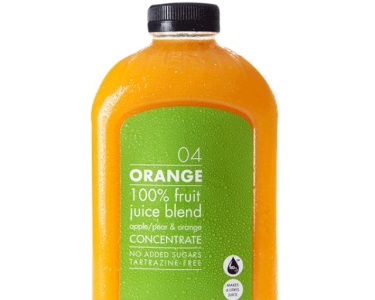Couldn't find the product you want?
Fill out this form to request the product.
Export from Switzerland
Switzerland has a stable, prosperous and high-tech economy and enjoys great wealth, being ranked as the wealthiest country in the world per capita in multiple rankings. In 2011 it was ranked as the wealthiest country in the world in per capita terms (with "wealth" being defined to include both financial and non-financial assets).
Switzerland's most important economic sector is manufacturing. Manufacturing consists largely of the production of specialist chemicals, health and pharmaceutical goods, scientific and precision measuring instruments and musical instruments. Exported services amount to a third of exports. The service sector - especially banking and insurance, tourism, and international organisations - is another important industry for Switzerland.
Trade has been the key to prosperity in Switzerland. Switzerland's exports accounts for 50% of its GDP.
The top exports of Switzerland are gold, packaged medicaments, human or animal blood, base metal watches, precious metal watches, machines, gems, precious metals, organic chemicals, medical and technical equipment, electronics, plastics, oil, iron or steel.
Switzerland's main export partners are Germany, United States, Italy and France, Hong Kong, India.
Import to Switzerland
The economy of Switzerland is one of the world's most stable economies. Its policy of long-term monetary security and political stability has made Switzerland a safe haven for investors, creating an economy that is increasingly dependent on a steady tide of foreign investment.
Because of the country's small size and high labor specialization, industry and trade are the keys to Switzerland's economic livelihood. Switzerland has achieved one of the highest per capita incomes in the world with low unemployment rates and a balanced budget. The service sector has also come to play a significant economic role.
Switzerland imports mostly machinery, chemicals, metals, agricultural products and textiles. Switzerland top imports also include cars, jewelry and refined petroleum.
Switzerland's main import partners are European Union countries (Germany, Italy, France, Netherlands, Austria), China and United States.
The body needs a variety of the following 5 nutrients - protein, carbohydrate, fat, vitamins and minerals - from the food we eat to stay healthy and productive. Protein - is needed to build, maintain and repair muscle, blood, skin and bones and other tissues and organs in the body. Carbohydrate - provides the body with its main source of energy. Vitamins and minerals are needed in very small amounts and are sometimes called micronutrients, but are essential for good health. They control many functions and processes in the body, and in the case of minerals also help build body tissue such as bones (calcium) and blood (iron).
Sell food products on Export Portal, build your brand on the biggest eCommerce platform with a large catalog of international goods and amazing service.
Purchase food products on Export Portal, get the products right from the manufacturer, avoiding thousands of retailers and extra payment.
Export Portal is the global market with the good possibility to open a personal store and make the brand visible on the international level. Sell and buy food and agricultural products on the safest internet portal. Find new clients all over the world, make your trade safe and secure.
Customs requirements of Switzerland
Switzerland Customs Contacts
Website: http://www.ezv.admin.ch/index.html?lang=en
Tel: +41 58 467 15 15
Switzerland is a country situated in Western and Central Europe, bordered by Italy, France, Germany, Austria and Liechtenstein. It is a member of the Euro-Atlantic Partnership Council, European Free Trade Association (EFTA), International Chamber of Commerce, World Trade Organization, Organization for Economic Cooperation and Development (OECD) and other international organizations.
Tariffs
The Swiss customs tariff, is based on the internationally valid Harmonized System (HS). The first six digits of the eight digit Swiss tariff headings correspond to the HS.
Product certification, labelling and packaging
CE marking is not required in Switzerland.
Although not part of the EU, Switzerland is a member of the European Free Trade Association (EFTA). To facilitate free trade with the EU, Swiss legislation has adapted to EU law in several areas.
There are different requirements with regard to product safety. Suppliers and manufacturers need to ensure products are safe under Swiss regulations. Products have to:
- meet relevant safety standards
- have clear instructions for proper use
- include warnings against possible misuse
You should translate your documentation to one or more of Switzerland’s four main languages; German, French, Italian or Romansch.
Being a member of European agency for standards (CEN), Switzerland adopts any new European standards in reconciliation with any conflicting national standards.
The harmonised standards may be ordered from the Swiss Association for Standardization (SNV).
Methods of quoting and payment
Quotations should be in Swiss Franc (CHF) or dollars.
The most popular payment method by which Swiss importers send payment to their foreign suppliers is by electronic funds transfer.
The letter of credit is still used in some industry sectors, but covers a fraction of total imports, largely due to its cost and time requirements and ease in obtaining credit ratings, which increases transparency and transactional safety.
Documentary requirements
Pro-forma invoice
This may occasionally be requested by the importer. A minimum of two copies is required.
Commercial invoice
No prescribed form and a minimum of two copies is required. The invoice must include:
- the name and address of both buyer and seller
- method of packing
- marks and numbers
- number of containers
- description of the merchandise (including HS description)
- net and gross weight
- free on board (FOB) value (Incoterms 1990)
- freight
- insurance and other charges
Bill of lading
No special requirements. To Order bills are acceptable.
Packing list
Not obligatory but simplifies clearance if a variety of goods are packed in different cases.
Certificate of insurance
Normal commercial practices apply.
Sources:
https://www.ch.ch/en/swiss-customs/
https://www.ch.ch/en/how-clear-personal-goods-purchased-abroad/
http://www.ezv.admin.ch/zollinfo_privat/04363/04364/index.html?lang=en
